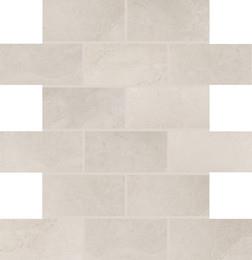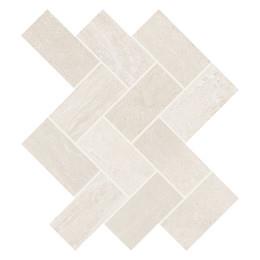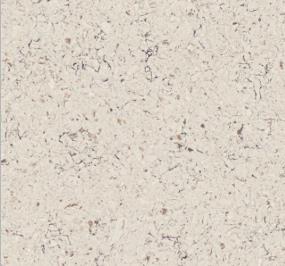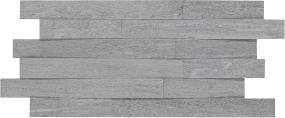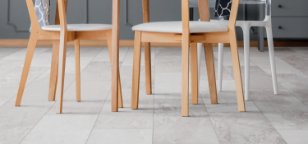
Porcelain and ceramic tile provide a beautifully timeless tool for decorating your home, whether you're looking for a slip-resistant bathroom floor tile for baby's bath time or a stunning wall tile in your kitchen that wows friends. Both options offer you the long-lasting durability you need and easy maintenance for your busy lifestyle in a range of patterns, colors, and shapes.
You can have your pick between ceramic and porcelain when it comes to shopping for the perfect tile flooring to complement your home's design aesthetic. Both are made from clay, have similar installation needs, and result in resilient, waterproof flooring that won't disappoint in a chaotic, kid-filled (or pet-filled) household.
With so many different types of tile available, you are sure to find the perfect option for your home. With proper care, tile can last for many years and add beauty and value to your home.
As you search for the perfect flooring for your home, are you focused on picking a durable solution that will last for years and years, or is your goal to find floor tiles that perfectly tie your space together? Believe it or not, you actually don't have to decide between practicality and visual aesthetics since porcelain and ceramic tile floors can deliver on both needs!
Choose from a seemingly endless selection of sizes, shapes, and designs, from wood-look kitchen floor tile to oversized rectangle bathroom floor tile resembling expensive marble. You can easily find a tile flooring that perfectly suits your family's unique lifestyle and home decor.
What are the key benefits and disadvantages that can come with wall and floor tiles? A few of the clear advantages include:
Budget-friendly
Durable enough to last for decades
Easy to maintain and clean
Beautiful styles and colors available and in a variety of sizes
A few disadvantages worth considering include:
Seams of grout can be difficult to clean
Can feel cold underfoot, though that can be refreshing in warmer seasons and climates
More time-consuming and tedious to install
Need sturdy support since they can be heavy
You know there are two types of floor tile available, but you have no idea how to tell them apart, let alone which one to choose for your particular project. That's where we come in! Ceramic and porcelain tiles make gorgeous flooring for the busiest rooms of your home. So what's the difference? How they're constructed! Porcelain tiles are fabricated of a finer mix of purer clay that's then fired at a high temperature. This results in a denser tile that holds up better to water, making it the perfect choice for your bathroom and laundry room tile needs.
Wall tile
Are you looking to turn your boring bathroom into a spa-like retreat that features beautiful wall tile? Check out porcelain tile, which is the better option for this high-moisture situation. Whether you're installing an accent wall, a bathroom stall, or a kitchen backsplash, you want a lighter wall tile. Your local Flooring America expert can help you identify the best products for your specific use, plus act as a tie-breaker if you just can't decide from the overwhelming color and design options!
Even though they may look delicate, all types of floor tiles offer incredible durability, even in the face of your little ones on their rowdiest days! Ceramic and porcelain tiles can hold up to the scuffs and scratches that can so easily occur during daily wear and tear from your bustling household.
The cost of both wall and floor tiles vary based on several details. What size, type, and quality of tile do you want? How large is the space you're tiling and how much tile will it require? As you can imagine, high-quality floor tiles and those in bigger sizes will cost more, as will installers' quotes for larger or more complex areas. For example, you can expect to spend less to install kitchen tile flooring than you would to tile your entire first floor.
Whether you end up choosing a stunning porcelain bathroom floor tile or intricate ceramic wall tile, you can expect decades of life from your new investment. But that's assuming you put your best foot forward when it comes to a handful of factors that influence your tile's longevity.
These include:
How it's installed
The quality of the materials used, including the tile itself
How well you care for and maintain the tiles and surrounding grout
Whether you follow the manufacturer's guidance for your particular product
A proper installation is among the most impactful variables. Poorly sealed grout and misalignment are two issues that can commonly occur if any part of the installation goes awry. To avoid any headaches, trust a professional installer to do the job right, ensuring your warranty protection stays intact and it's smooth sailing for years to come!
You've had your eye on a beautiful ceramic or porcelain tile, and finally the day has come and your dream tile is installed. But, how do you keep your shiny new tile floors looking their best? Thankfully, it's a fairly seamless process that largely involves removing accumulated dirt and dust with routine sweeping or vacuuming with a soft brush attachment. When you're looking for a deeper clean, a mop or sponge can help. Always follow the care instructions provided by the manufacturer to ensure the longest life from your tile floors.
You can find beautiful bathroom floor tiles in ceramic and porcelain. Your local Flooring America expert can help you determine which one best suits your needs. Luckily, both choices are budget-friendly, easy to clean, and long-lasting —even with messy bathtimes!
Porcelain tiles are the better bet for your shower floors. They have a lower absorption rate, making them less slippery and a little easier to clean.
Both tile options are fabulous choices, especially for the kitchen, utility room, bathrooms, and any other area that might face moisture. You can get both types of tile in natural stone and hardwood looks, and they both withstand the daily wear and tear that comes with an active, pet-friendly household.
Great question! You can use floor tiles on the wall, but you don't want to use wall tiles on the floor. Why? Because wall tiles are thinner and less durable when it comes to bearing the weight that comes with foot traffic.
The best tiles for flooring vary based on the needs of the space. The biggest consideration is water resistance. If you're looking to install tile in a high-moisture area, like bathrooms, consider ceramic or waterproof porcelain floor tiles.
Believe it or not, one type isn't better than the other when it comes to a kitchen floor. Both types are resilient enough for constant foot traffic and easy to clean, even after the messiest meal prep.
Flooring America collects data when you visit our website as described in our Privacy Policy. By continuing to browse, you accept and agree to our enhancing your experience with cookies. Learn more.
